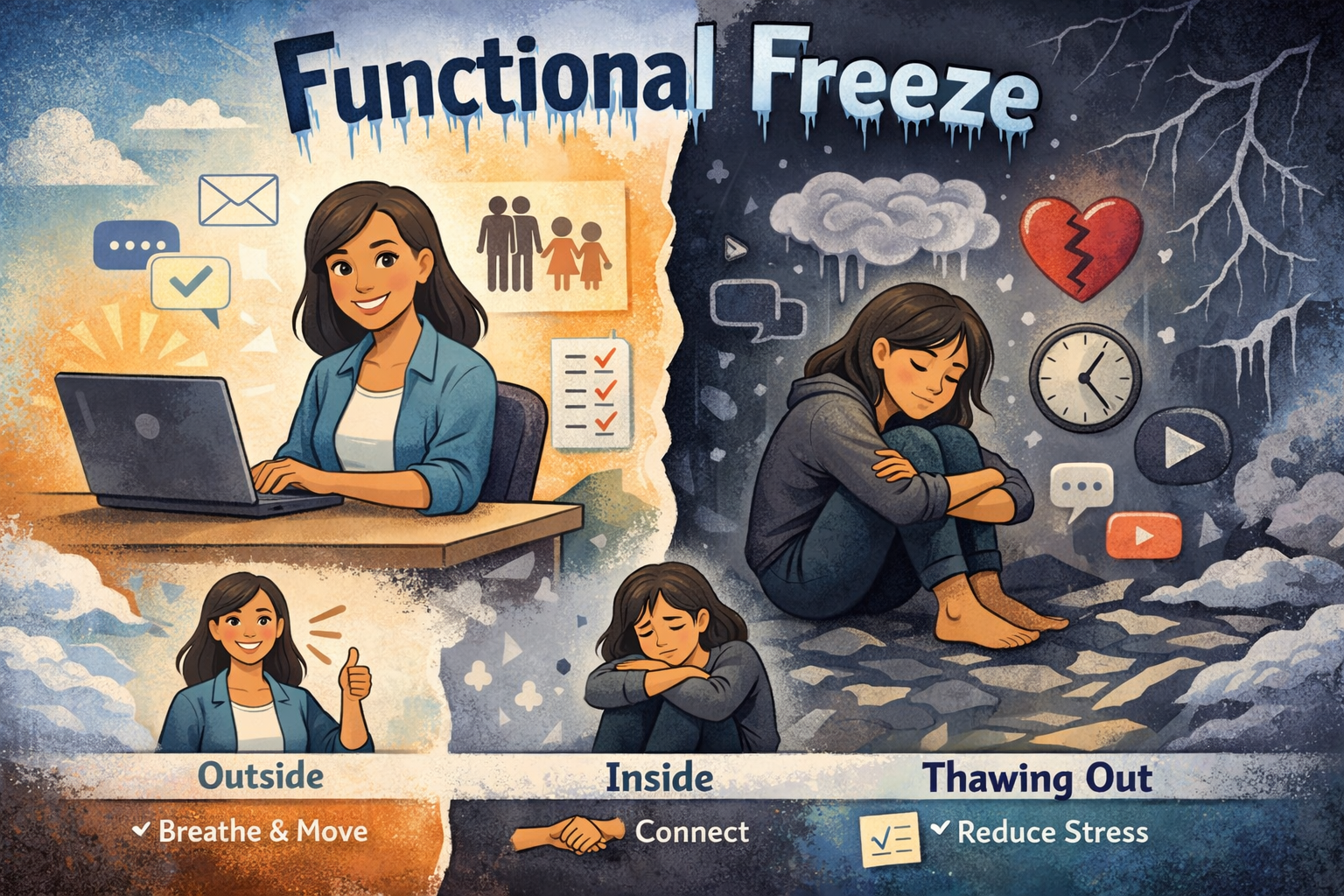Worrying is something everyone experiences, but have you ever wondered what really happens in your mind and body when you worry? Although it might seem harmless, worry has profound effects on both your mental and physical health. Scientists have studied worry extensively to understand how it works and how it impacts our well-being. In this article, we’ll dive into the science of worry and explore how it affects the mind and body in ways you may not expect.
What Is Worry?
Worry is the mind’s way of dealing with potential problems or uncertainties. When you worry, you’re usually focused on things that might go wrong in the future. Although it can seem like a helpful habit, worrying often leads us to dwell on worst-case scenarios. This natural process is meant to help us prepare, but too much worry can end up having the opposite effect.
The Science Behind Worry: The brain responds to worry by activating its “fight-or-flight” system, a survival mechanism that readies the body to react to danger. This response causes the brain to release stress hormones like cortisol and adrenaline. While these hormones are beneficial in short-term situations (like avoiding immediate danger), prolonged worry can keep your stress hormones elevated, leading to several health issues over time.
How Worry Affects the Mind
One of the first places worry impacts is your mind. Worrying continuously engages the brain in thinking about negative possibilities, which can lead to various mental health effects.
1. Anxiety and Depression
One of the most common effects of worry on the mind is the development of anxiety. When your brain constantly focuses on uncertainties, it becomes difficult to feel calm and safe. Studies have shown that prolonged worrying can actually rewire the brain, making it more prone to anxiety. In severe cases, ongoing worry can also lead to depression, especially if the worrying makes you feel hopeless or helpless.
2. Trouble Focusing
Worry can make concentrating on tasks difficult. Because your brain is preoccupied with potential problems, it has less energy for other things, like work, hobbies, or personal goals. This loss of focus can impact productivity and may even strain relationships if you’re not fully present with others.
3. Memory Problems
Extended periods of worry can also affect memory. When the brain is under constant stress, it tends to store fewer memories because it is focused on survival rather than on remembering information. Studies show that chronic stress from worry may even impact the parts of the brain responsible for long-term memory, making it harder to recall details.
How Worry Impacts the Body
The mind and body are closely connected, and when the mind is stressed, the body feels it too. Worrying can have significant effects on your physical health, often in ways that might not be immediately obvious.
1. Physical Tension
Ever notice that your muscles feel tight when you’re stressed? Worry triggers the body to tense up as part of its “fight-or-flight” response. This reaction prepares you to react to immediate danger, but when the tension becomes constant, it can lead to sore muscles, headaches, and even neck and back pain. Persistent tension in the body can lead to chronic pain issues over time.
2. Immune System Weakness
The effects of worry on the body go beyond just tension. When you’re stressed for extended periods, your immune system becomes weakened. Elevated levels of cortisol from worrying can interfere with the body’s ability to fight off infections, making you more susceptible to colds, flu, and other illnesses.
3. Digestive Issues
Stress and worry can also interfere with digestion. When you’re worried, the body’s resources shift toward dealing with perceived threats rather than digestion. This reaction can lead to symptoms like stomach pain, acid reflux, and even irritable bowel syndrome (IBS) in some people.
4. Cardiovascular Health
Long-term worry can also affect heart health. Constant stress from worry keeps your blood pressure high, increasing the risk of heart problems over time. Elevated stress hormones like cortisol can contribute to plaque buildup in the arteries, which can increase the risk of heart attacks and strokes.
Breaking the Cycle of Worry
If worry is part of human nature, how can we manage it? Thankfully, there are some proven strategies for reducing worry and its effects on the mind and body.
1. Mindfulness Practices
Practices like meditation and mindfulness help you stay in the present moment, which can stop worry from taking over. By focusing on the “here and now,” you can reduce stress hormones and improve your mental focus. Studies show that mindfulness not only lowers stress but also enhances emotional well-being over time.
2. Physical Exercise
Exercise is one of the best ways to reduce worry’s impact on the body. Physical activity helps reduce tension, improves cardiovascular health, and even releases endorphins, the body’s natural “feel-good” chemicals. Regular exercise is an excellent way to manage worry and anxiety.
3. Seeking Support
Sometimes, talking to someone about your worries can make a big difference. Whether it’s a friend, family member, or mental health professional, sharing your concerns helps you feel supported. A therapist can help you identify worrying patterns and teach you techniques to manage them better.
Final Thoughts on Worry and Wellness
Worrying is a common part of life, but understanding the science behind it can help us manage it better. The effects of worry on the mind and body are real, impacting both mental and physical health. By recognizing these effects and taking steps to manage worry, we can protect our well-being and lead healthier, happier lives.
Learning to cope with worry is about finding balance—taking necessary precautions without letting “what ifs” control our lives. Through mindfulness, exercise, and seeking support when needed, we can learn to manage worry effectively, improving both our mental and physical health in the long run.
To read more articles on mental health issues, visit Mind Therapy Blog














